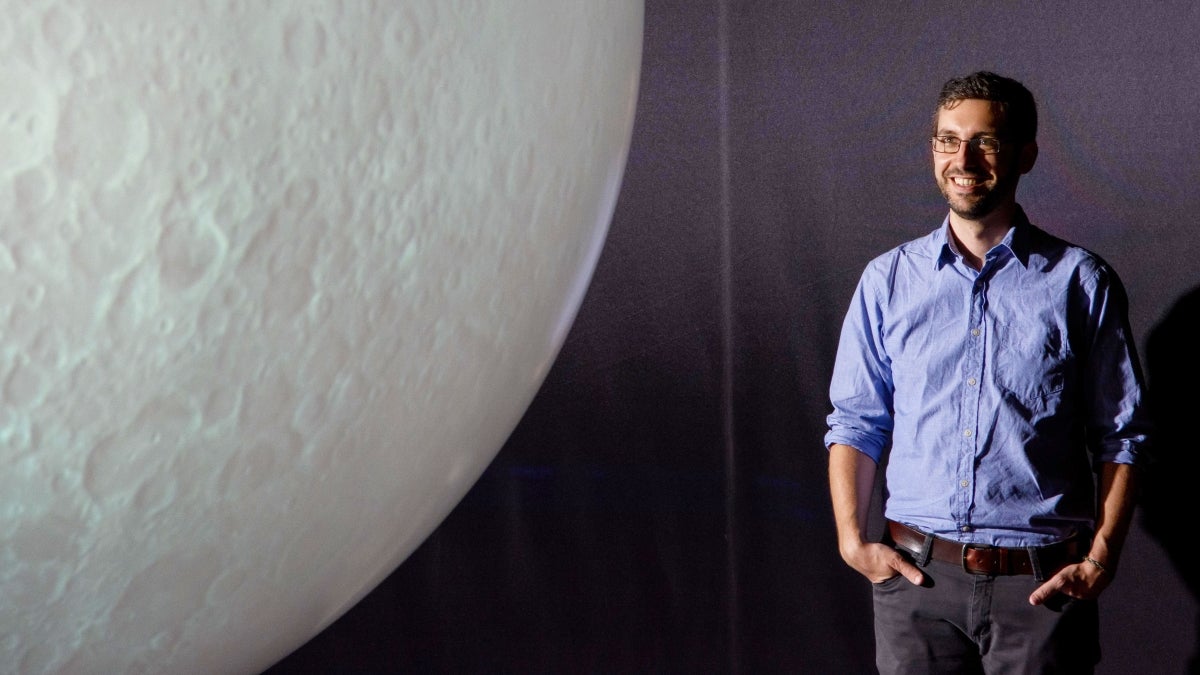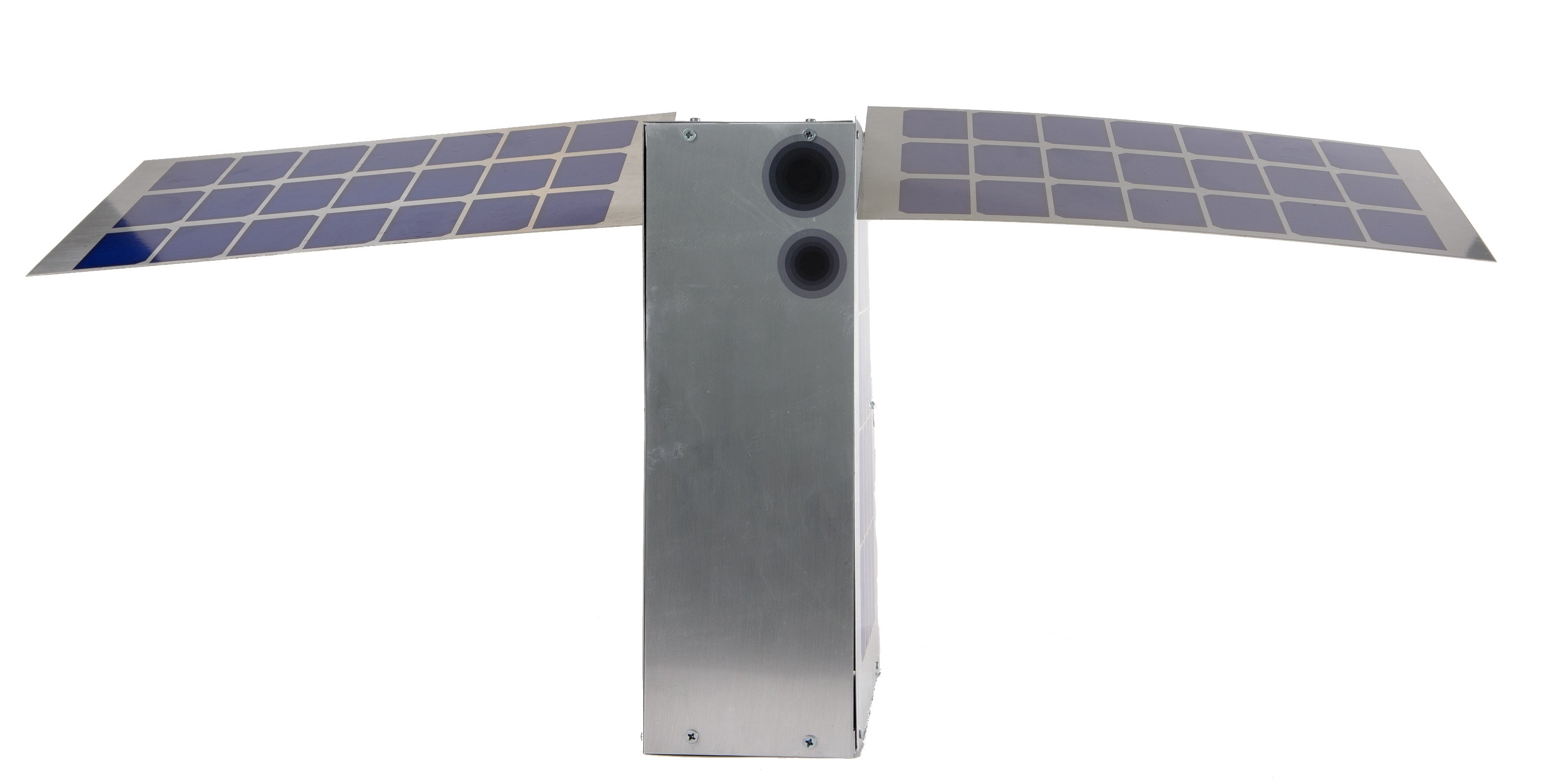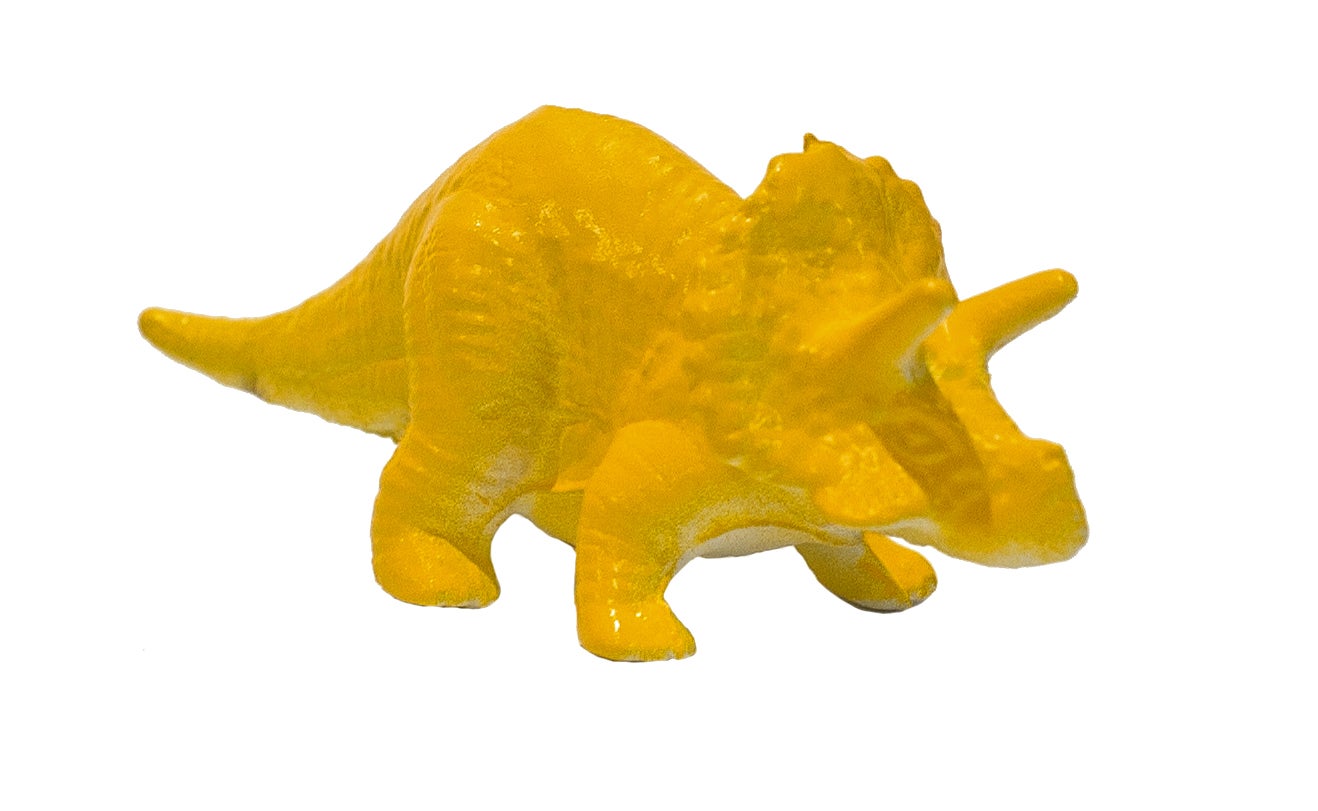Craig Hardgrove was fascinated with dinosaurs. When he found out they were killed off by an asteroid, he became fascinated with space. Now he’s head of a NASA satellite project to explore water-ice deposits on moon. “If you’re interested in something, you never really know where it’s going to lead you,” Craig says.
Luna-H Map
Lunar Polar Hydrogen Mapper
It has been six years since deposits of water were found on the moon. Now the question isn’t “Is there,” but “How much” and “Where.” The LunaH-Map orbiter will train two neutron spectrometers on the moon’s south pole region to confirm and map water deposits in the always-dark craters there. The results will become part of NASA’s strategy for sending humans farther into the solar system.
Craig's favorite dinosaur
triceratops [trahy-ser-uh-tops]
Triceratops exceeded the largest rhinoceroses in bulk, equalling a fairly large elephant, but with much shorter legs.
Explore your interests, options, future
me3 is an interactive game that leads college-bound students to new, even unexpected paths like Craig’s. They explore career interests, relate them to college majors, and design a high school experience around them. Explore more
Download the Learn to Thrive app in the App Store or Google Play Store for more interactive features.
More Science and technology

ASU to host 2 new 51 Pegasi b Fellows, cementing leadership in exoplanet research
Arizona State University continues its rapid rise in planetary astronomy, welcoming two new 51 Pegasi b Fellows to its exoplanet research team in fall 2025. The Heising-Simons Foundation awarded the…

ASU students win big at homeland security design challenge
By Cynthia GerberArizona State University students took home five prizes — including two first-place victories — from this year’s Designing Actionable Solutions for a Secure Homeland student design…

Swarm science: Oral bacteria move in waves to spread and survive
Swarming behaviors appear everywhere in nature — from schools of fish darting in synchrony to locusts sweeping across landscapes in coordinated waves. On winter evenings, just before dusk, hundreds…




